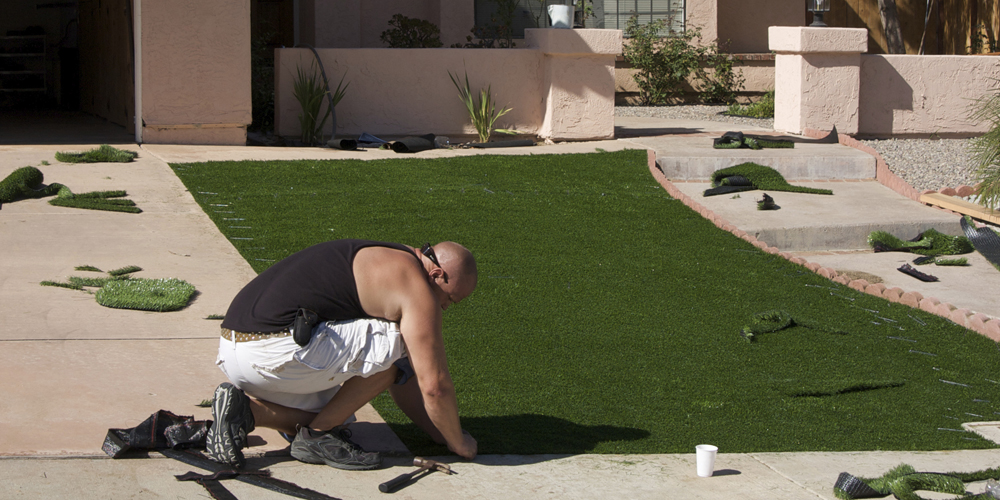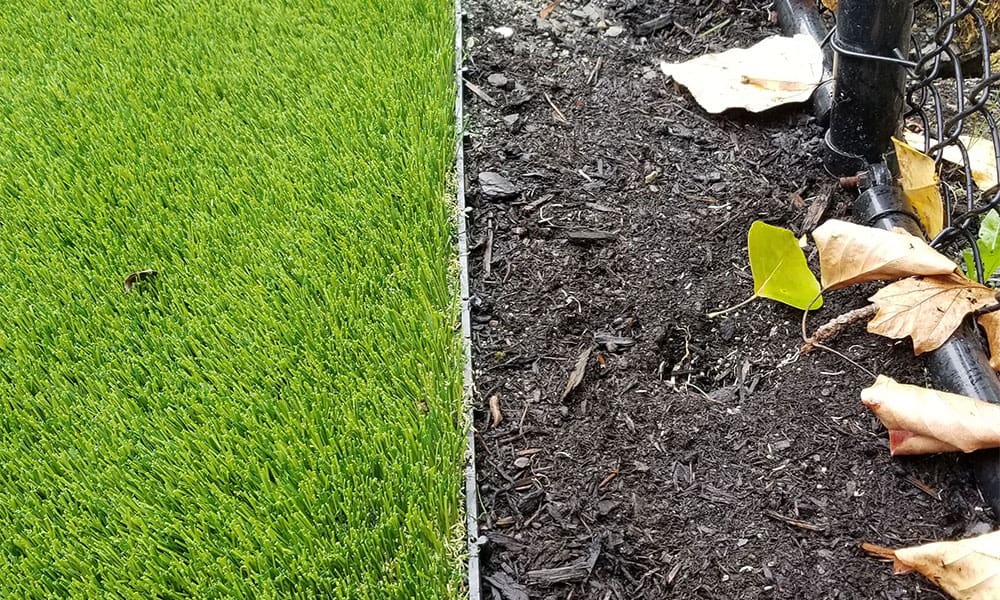Leading Factors to Think About Artificial Yard for a Low-Maintenance and lavish Backyard
As home owners increasingly seek lasting options for exterior spaces, artificial lawn offers an appealing choice to typical lawns. Its capacity to maintain a vivid look year-round without the concerns of chemical, watering, or mowing therapies makes it a practical choice for those intending to lower maintenance efforts. The ecological advantages, consisting of considerable water preservation and reduced reliance on chemicals, line up with contemporary eco-friendly values. However, the benefits extend past simple visual appeals and sustainability; discovering the complex implications of synthetic lawn discloses an extensive strategy to yard administration that advantages deeper factor to consider.
Year-Round Plant
One of one of the most considerable benefits of artificial lawn is its ability to give year-round greenery, regardless of climate problems. Property owners usually deal with challenges in keeping a dynamic yard due to seasonal changes, dry spells, or heavy rains. Fabricated grass removes these worries, guaranteeing a consistently lavish look throughout the year.
This artificial choice is crafted to endure different weather scenarios, from blistering summer heat to cold winter season temperatures. Unlike all-natural lawn, which might brownish or become uneven throughout severe conditions, synthetic grass preserves its vivid shade and structure, improving the aesthetic allure of any landscape.
Furthermore, fabricated turf is resistant to parasites and illness that generally influence all-natural lawns. This durability adds to its enduring appeal, as there is no demand for chemical therapies or plant foods that can be unsafe to the setting. In addition, property owners can take pleasure in the aesthetic benefits of a well-kept grass without the intermittent challenges posed by all-natural yard care (artificial grass installation).
Lowered Upkeep Initiatives
Man-made turf dramatically minimizes maintenance efforts, permitting property owners to appreciate a pristine grass without the taxing tasks related to all-natural grass treatment. One of the most notable advantages of synthetic turf is the elimination of routine mowing. Without demand for a lawnmower, house owners save both time and the cost of maintenance related to this tools.

Cleansing synthetic turf is uncomplicated; a simple rinse with a pipe or the occasional cleaning to remove particles is normally enough - artificial grass canoga park. This simplicity of treatment permits home owners to invest even more time appreciating their outside areas as opposed to laboring over them. In recap, the reduced maintenance efforts connected with synthetic yard make it an appealing selection for those seeking an attractive, problem-free backyard
Water Preservation Perks
The substantial decrease in maintenance initiatives connected with man-made yard encompasses water preservation, making it an eco-friendly option for house owners. Conventional grass call for considerable amounts of water to remain lush and dynamic, often leading to too much water use, especially in deserts. On the other hand, synthetic lawn eliminates the demand for normal watering, drastically lowering the total water usage in your backyard.
By going with artificial lawn, home owners can conserve hundreds of gallons of water every year. This shift not just benefits individual houses yet likewise adds to more comprehensive ecological campaigns targeted at decreasing water visit this web-site waste. In locations experiencing water deficiency, the adoption of fabricated yard can play a significant duty in mitigating the results of drought and ensuring that useful water resources are made use of more efficiently.
Furthermore, the setup of synthetic yard can assist reduced metropolitan water demand, profiting the neighborhood all at once. With expanding recognition of environmental concerns, choosing artificial grass works as an aggressive step in the direction of lasting landscape design, helping to maintain all-natural water sources while maintaining a visually pleasing outdoor space (turf installation). In summary, synthetic grass provides a compelling option for water preservation, straightening environmental obligation with modern-day landscaping demands

Insect and Allergic Reaction Reduction
A substantial advantage of setting up artificial lawn is its ability to minimize insects and allergens in exterior rooms. Typical yard yards commonly work as reproducing grounds for pests such as mosquitoes, ticks, and ants, which can produce pain and health risks for households and pets. On the other hand, synthetic grass eliminates the organic product that brings in these bugs, thus considerably reducing their populations in your backyard.
Additionally, natural grass can nurture mold and mildew, plant pollen, and various other allergens, which can trigger allergic reactions and respiratory concerns for sensitive individuals. Synthetic grass provides a cleaner atmosphere, minimizing the possibility for allergenic reactions. Unlike all-natural lawn, fabricated lawn does not generate pollen, making it an exceptional choice for allergy patients looking for to appreciate their outside rooms without the danger of flare-ups.
In addition, the review absence of dirt in synthetic grass suggests there is much less dirt and dirt, additional decreasing airborne allergens. This low-maintenance alternative not only improves the aesthetic allure of your backyard but likewise advertises a healthier exterior setting, allowing families to appreciate their yards without the constant fear of irritants and insects. Thus, artificial lawn is a calculated selection for those focusing on convenience and health and wellness in their outside home.
Long-Term Expense Financial Savings
Investing in artificial grass can lead to substantial lasting cost financial savings for homeowners. Artificial yard removes the demand for routine lawn maintenance expenditures, such as mowing, feeding, and watering.
Additionally, the longevity of artificial turf further improves its cost-effectiveness. Many top quality artificial yard products can last 15 to 25 years with very little upkeep, reducing the requirement for replacement or substantial repairs. In comparison, natural turf might call for regular reseeding and routine treatment, which can swiftly add up in prices.
Utility savings are one more critical variable. House owners can anticipate to see lower water bills, as synthetic turf does not require watering. Additionally, the reduction in grass care solutions can liberate useful time and resources, permitting property owners to assign their budgets somewhere else.
Verdict
In recap, man-made turf offers numerous benefits for house owners seeking a low-maintenance More about the author and vibrant landscape. Its capability to offer year-round plant, combined with minimized maintenance initiatives and considerable water preservation, makes it an appealing choice. Additionally, the decrease of parasites and allergens adds to a healthier outside setting. Ultimately, the long-term price financial savings linked with man-made grass strengthen its condition as a practical and sustainable solution for improving outside spaces.
Fabricated grass significantly lowers upkeep efforts, enabling house owners to take pleasure in an immaculate lawn without the taxing jobs associated with all-natural grass treatment.The considerable reduction in maintenance efforts connected with artificial turf expands to water preservation, making it an eco friendly option for home owners. In comparison, man-made turf removes the demand for routine watering, significantly lowering the general water usage in your backyard.
In areas experiencing water scarcity, the adoption of fabricated lawn can play a considerable role in minimizing the impacts of dry spell and ensuring that beneficial water sources are made use of much more successfully.
With expanding recognition of ecological concerns, selecting synthetic yard serves as a positive step in the direction of sustainable landscape design, helping to maintain all-natural water resources while keeping a cosmetically pleasing exterior space.